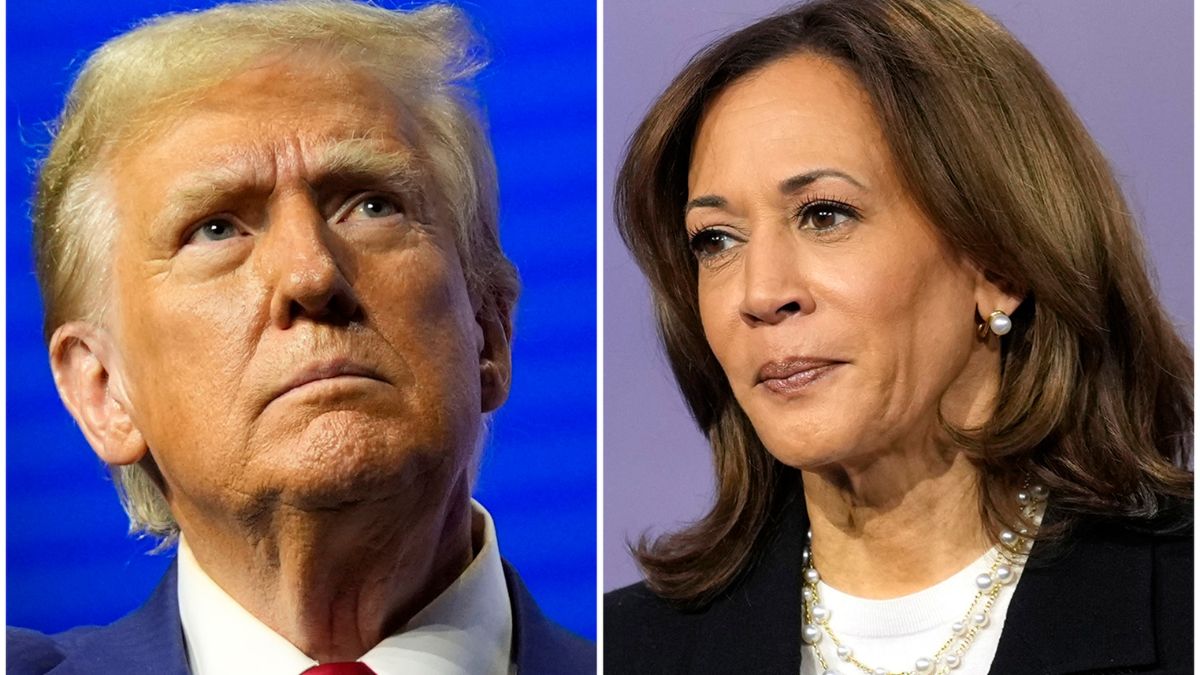The people of the United States will vote for their next president on November 5. Who will win? Will it be Kamala Harris, Democratic candidate, still slightly ahead according to most polls, and incumbent Vice President? Or the challenger, former US president and Republican candidate, Donald Trump?
Pollsters and pundits have been harping on how close the race is. But not really, even if we go by living memory. Have we forgotten that in 2000 George W. Bush won by a margin of just 537 votes against Al Gore? That too from recounts and Supreme Court rulings from a single state, Florida, which tilted the balance in the electoral college decisively in George W.’s favour?
What makes the US presidential election so special—and at times difficult to call—is that though a direct franchise of the voting public for their chief executive and head of state, it is not the total number of popular votes cast that determines the outcome. Instead, whoever wins the majority in an individual state, even, theoretically, by a single vote, bags the entire state’s electoral votes. What this means is that losing candidates may actually win by handsome margins in states where they are ahead, but because they are behind by a few votes in the swing states, may actually end up losing the presidency altogether.
In the present context, with many states already considered a done deal for either Democrats or Republicans, the outcome boils down to the few undecided or uncertain ones. Let me explain. Key states such California, New York, Illinois, and Washington are already overwhelmingly Blue or Democratic. Add to these the others on the same side, Harris has an estimated 226 votes already in her kitty. The magic number is 270. Therefore, she only needs an additional 44.
Trump on the other hand leads in states such as Texas, Florida, Ohio, and Indiana, but given that these and the others leaning Republican have less votes than the Blue states, the expected Red votes already bagged are 219. Trump would thus need at least 51 more votes to enter the White House.
Impact Shorts
More ShortsThis is where the seven battleground states of Nevada, Arizona, Wisconsin, Michigan, Pennsylvania, North Carolina, and Georgia will really tilt the crucial casting votes. Of these, Pennsylvania, with 19, and Georgia, with 18 respectively, are the most important in terms of weightage. Now to the crucial new data, which seems to show Trump gaining in not one or two, but all of these seven.
Does this mean that Trump will definitely win? Not really. Why? Because states such as Iowa, which were considered strongly Red, if the Selzer poll is to be believed, now show a significant Harris lead. Even Texas, a strongly Republican state, may throw up a surprise. Similarly, there might be reverses in some Blue states, such as Virginia and New Mexico. At least that is what is indicated by Trump’s choosing to make last minute pit stops there.
Yet, in my view, with over 90 million Americans having already cast their votes and with unusually high turnouts, this election may not be as closely contested as predicted. That is because both media and experts have shown themselves to be partisan. This makes their data and prognostics unreliable.
However, this is a bitterly fought and crucial election not only for the US but also for the world. That is because the two candidates not only voice radically different views, but also represent starkly different visions of America. For many ordinary Americans, what is at stake is the very idea of America, what it means to be American, and America’s place in the world.
That is where, despite his foot-in-the-mouth syndrome and natural nastiness, Trump seems to have tapped the nation’s nerve, if not pulse, with his “Make America Great Again” (MAGA) campaign. Surviving a legal dragnet, which he claims is nothing but political vendetta, and standing tall in spite of assassination attempts, Trump comes across as a much stronger, more determined, and tougher candidate. He is also a natural media and publicity hound, attracting eyeballs and attention wherever he goes. Even the number of jokes targeting him, reportedly over 1400, is way more than the 46 that center on Harris.
Harris, despite being a much more normal and likeable person, does not come across, despite her best attempts, as the candidate for change. Instead, the anti-incumbency against the current Biden-Harris administration is sure to bite her too. Appeals to identity politics and political correctness may not be sufficient to swing the race, especially in a time of crisis, such as the present.
Regardless of who wins, most people, Americans especially, will be relieved when the results are declared in the next few days. The campaign, with all its ups and downs, has been grueling not only for the candidates but for the nation too. As much as the final result, what American most wish for is a peaceful transition for which a decisive win for either candidate is the prerequisite.
I suspect that the verdict of ‘Janata Janardan’—the Divine as embodied in the people—will deliver just that.
The writer is an author and columnist. Views expressed in the above piece are personal and solely those of the author. They do not necessarily reflect Firstpost’s views.


)

)
)
)
)
)
)
)
)



